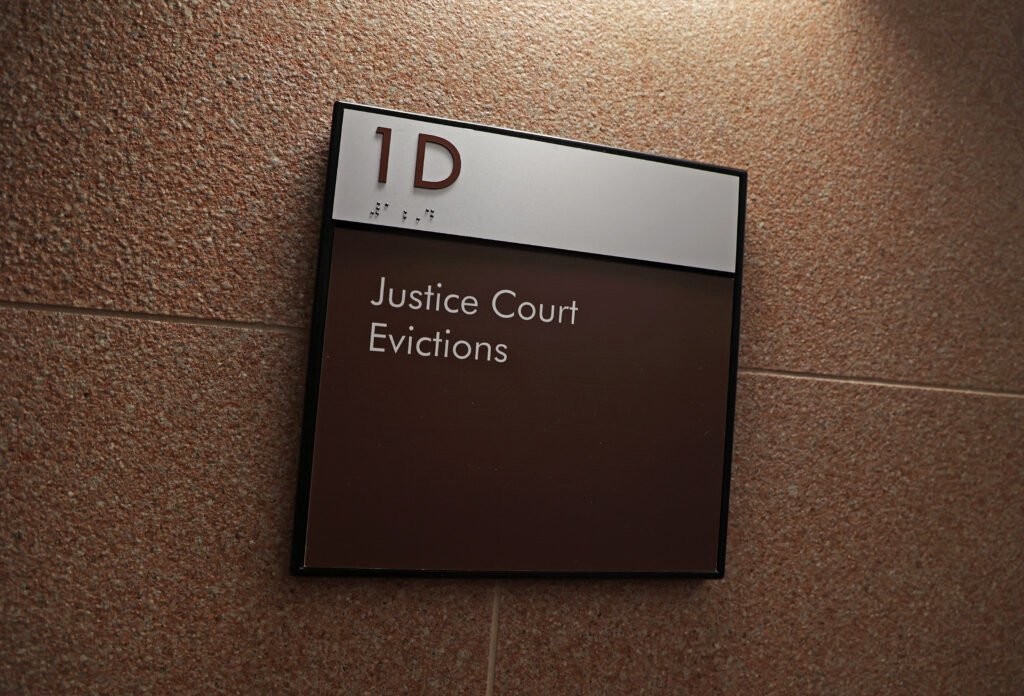This article was originally published at nevadacurrent.com

(Note: This article was originally published in the Nevada Current, although, has been rewritten to focus on Nevada. Originally written by Robbie Resquiera; condensed and localized by Amelia Hollis.)
More states across the U.S. are sealing eviction records to address housing challenges and improve community stability, but efforts in Nevada hit a roadblock this year when Republican Gov. Joe Lombardo vetoed legislation aimed at similar reforms.
Nevada’s vetoed bill would have automatically sealed certain eviction records, potentially offering tenants a chance to regain stable housing without old cases impacting their rental prospects.
Democrats in NV passed the bills,
In his veto message, Lombardo argued the measure was “lopsided, red-tape laden, and would have disastrous consequences on Nevada’s housing market.” He expressed concerns that the bill would burden courts, remove judicial discretion, and “risks punishing” property owners by shifting procedural responsibilities to them.
Despite the setback in Nevada, other states have found bipartisan paths forward. North Dakota, with a Republican super-majority legislature, recently passed a bill allowing tenants to petition to seal eviction records after seven years if they’ve settled outstanding rent or damages and remained eviction-free.
Republican state Sen. Jeff Barta of North Dakota noted the pragmatic community benefits: “Some people weren’t evicted for being irresponsible. They were fleeing violence or hit by one bad break.” His Democratic co-sponsor, Sen. Ryan Braunberger, emphasized the economic and social importance of eviction record reforms: “Most landlords wouldn’t even give people a second chance once they saw an eviction on someone’s record. It didn’t matter if the case was from a decade ago or if it had been resolved. That record stuck to them like glue.”
Opponents of eviction sealing in North Dakota, including the state’s apartment association, argued the practice could complicate risk assessment for landlords. Jeremy Petron, a lobbyist, testified: “Property owners and property managers rely on background checks for decisions on prospective tenant approvals for the safety of neighbors and the property, and the business investment risk.”
Braunberger highlighted how a balanced approach helped secure overwhelming bipartisan support: “After talking with the Supreme Court and apartment associations, we landed on a compromise: sealing. It preserves judicial records while still giving tenants a fair shot at moving on.”
In Nevada, Lombardo’s veto was part of a broader rejection of tenant protection initiatives, including a separate bill intended to slow the state’s expedited eviction process. Housing advocates argue that maintaining public eviction records—especially when cases are resolved or dismissed—creates long-term social and economic burdens by limiting housing opportunities.
Although the Nevada Legislature passed all the bills, Governor Lombardo vetoed each one. Without a supermajority, the Democrats who passed the bills were unable to overide the vetos.
Braunberger’s perspective from North Dakota underscores a broader, pragmatic argument relevant to Nevada as well: “We have a housing crisis. Some areas can’t even attract employers because there’s no place for workers to live. Until we fix that, housing policy isn’t just social policy, it’s economic policy.”
Other states, including Idaho, Maryland, Massachusetts, and Indiana, have also enacted eviction-sealing laws, reflecting a growing trend aimed at stabilizing communities and supporting economic growth through practical housing reforms.

Leave a Reply